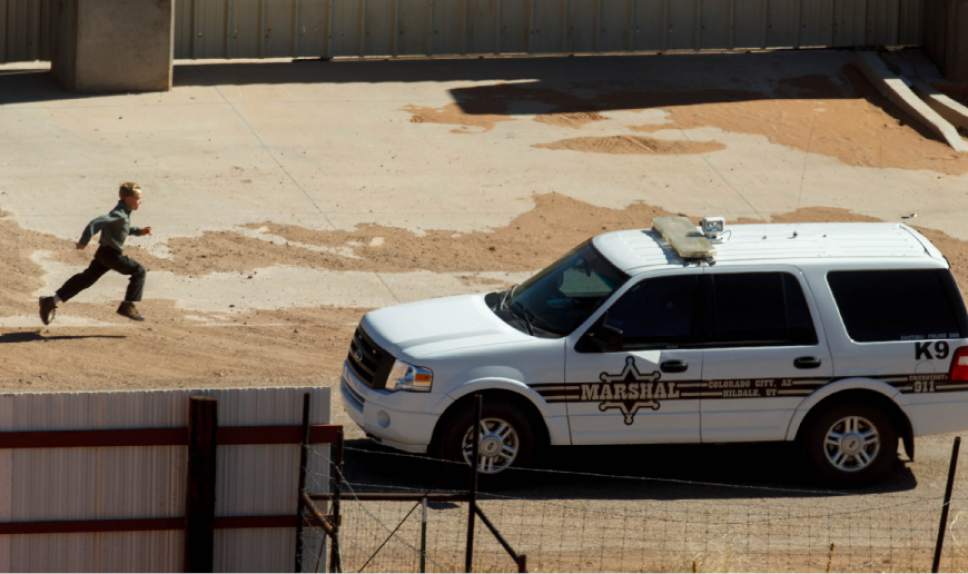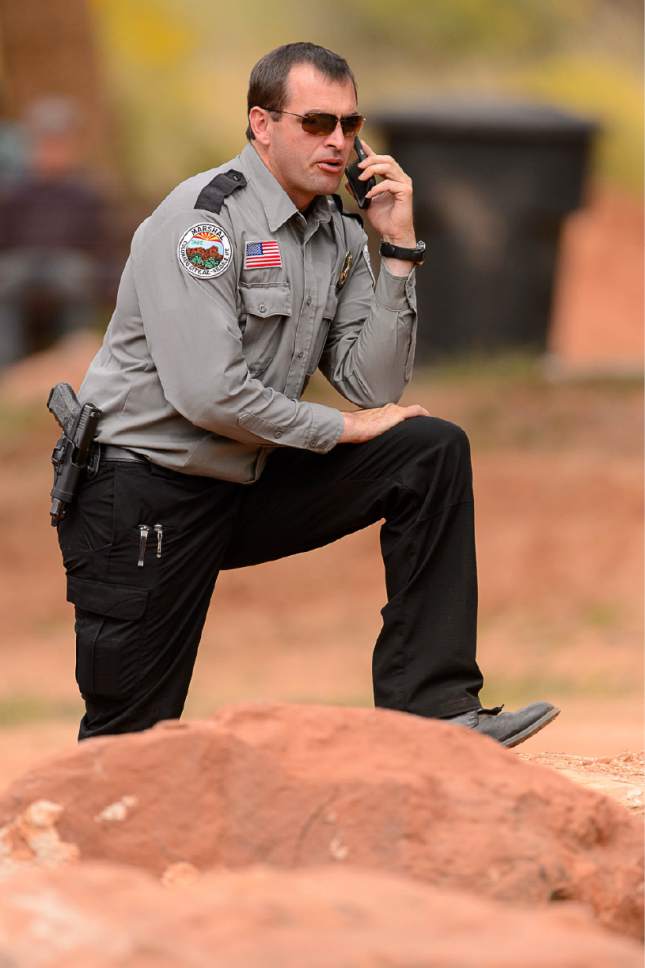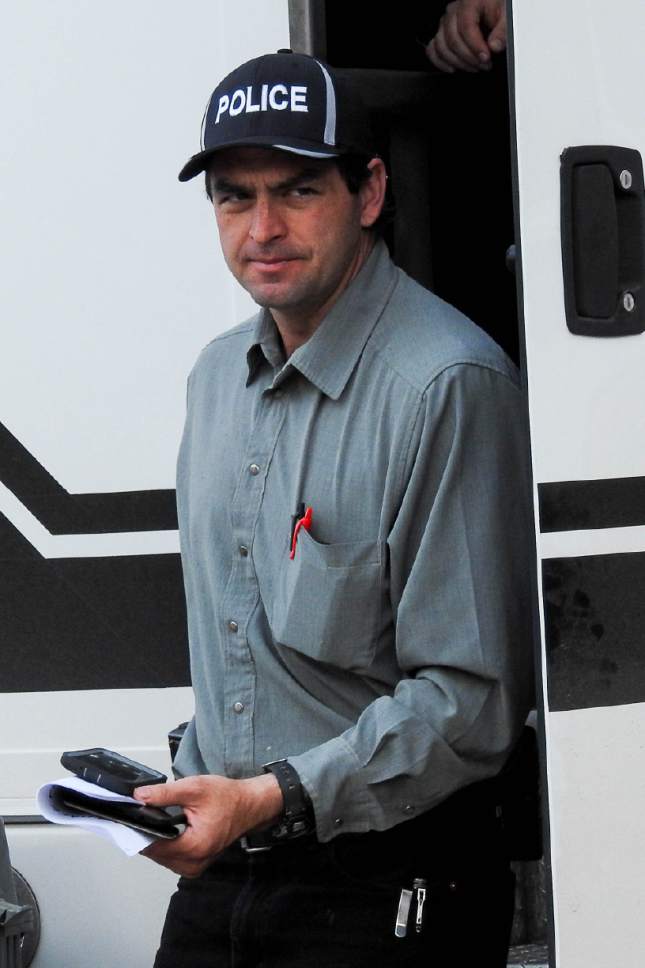This is an archived article that was published on sltrib.com in 2016, and information in the article may be outdated. It is provided only for personal research purposes and may not be reprinted.
Phoenix • The federal government's effort to dismantle a police department dominated by a fundamentalist Mormon sect on the Arizona-Utah border is overreaching and will hurt the communities, the department's chief marshal testified Wednesday.
Jerry Darger, chief marshal for the Colorado City Marshal's Office, testified in the Department of Justice's religious discrimination lawsuit against the twin cities of Colorado City, Ariz. and Hildale, Utah.
A federal jury found in March that the towns discriminated against residents who are not members of the Fundamentalist Church of Jesus Christ of Latter-Day Saints. The jury awarded six residents $2.2 million in damages, but the towns were held accountable for only $1.6 million after striking a deal with the Justice Department during trial.
Now the Justice Department wants the Marshal's Office dissolved.
"It's an overreach of the federal government," Darger told the court Wednesday. "They are holding us to a different standard."
Darger said he spoke with residents and they said dismantling the Marshal's Office "would have a very negative impact on the community."
"Nowhere in the history of the nation could I find [the Justice Department] seeking disbandment of a police department, except for us," Darger said.
Dan Corsentino, a defense expert and former sheriff of Pueblo County, Colorado, testified Wednesday that there are other options than disbandment that the court may consider.
Corsentino developed a strategic plan for the Marshal's Office, which involves hiring two more deputies and improving training officers, including cultural training.
"This is a faith-based community," Corsentino testified. "[Deputies need a] wide understanding not only of the FLDS faith, but of all religions."
Corsentino advocated keeping Darger in charge, as long as he reaches out to improve relationships with other law enforcement agencies and seeks more training.
Representatives of the Washington County and Mohave County sheriff's offices testified Monday in support of disbandment, and said their departments would be willing to take over policing in the towns. Hildale is in Washington County, Colorado City in Mohave County.
Darger testified that his interactions with Washington County have left him with a "bad taste" in his mouth.
In one incident, Darger said, he investigated the disappearance of a 13-year-old boy who allegedly was taken from the community to Salt Lake City to be emancipated from his parents. He said his department sent its findings to Washington County Attorney Brock Belnap, but Belnap did not take any action.
"He said the intent was to help escape the FLDS," Darger said. "I took it as, 'It's OK to kidnap FLDS children.' It was very frustrating."
In a testy exchange with Justice Department attorney Sean Keveney, Darger said he found even the FBI to be biased against the Marshal's Office after it declined to help investigate the boy's disappearance.
"I think there is some double standard, even by the FBI," Darger testified.
"You're comfortable, as a new chief of police ... being critical of the Federal Bureau of Investigation?" Keveney asked, incredulously.
"When we reach out to them, and they don't want to help," Darger replied.
Darger also voiced frustrations with the Mohave County Sheriff's Office, saying the department "goes out of their way" not to work with the Marshal's Office.
"You don't think the distrust of all these law enforcement agencies have anything to do with your agency?" Keveney asked.
Deputies in the Marshal's Office are under investigation for decertification by the Arizona Peace Officer Standards and Training Board, due to misconduct allegations.
Travis Meadows, an Arizona Department of Public Safety detective, testified Monday that he began probing the Marshal's Office due to claims that it was not adequately investigating property damage claims by the United Effort Plan Trust. The trust owns about 90 percent of the residential property in the two towns.
The investigation was "an effort to grandstand for this trial," Darger testified. "I think that their investigation is very biased."
In reviewing more than 150 reports completed by the Marshal's Office, Meadows said, he found reports that were not completed for more than two years.
Darger acknowledged that reports in his agency are not always timely completed, but attributed the delay to the volume of calls an officer may take during the day.
"It does take a while when that one officer doesn't have one day for a case," Darger said.
Since the jury verdict, Darger said, he has tried to improve the department's relationship with the community, despite not fully understanding the verdict and how it relates to his department.
"[I've] gone to the schools, preschools, talked to the children," Darger said.
Keveney asked Darger whether he read any testimony from the jury trial, aside from his own.
"I read through the verdict," Darger said. "I didn't see specific information about this officer or this incident."
U.S. District Judge H. Russel Holland interjected.
"What you are suggesting he undertake was a huge undertaking," Holland told Keveney.
The hearing was to continue Thursday with testimony from Jerry Darger's brother, Colorado City Town Manager David Darger.
Like his brother, David Darger lodged complaints against the Justice Department during the jury trial in February, claiming the federal government's actions were politically motivated religious discrimination.
Colorado City has a population of about 4,800 and Hildale's is about 3,000. Both towns are 99.2 percent white, according to city-data.com.
The leader of the sect, Warren Jeffs, is serving a life sentence for sexually abusing two girls he called his "spiritual wives."







